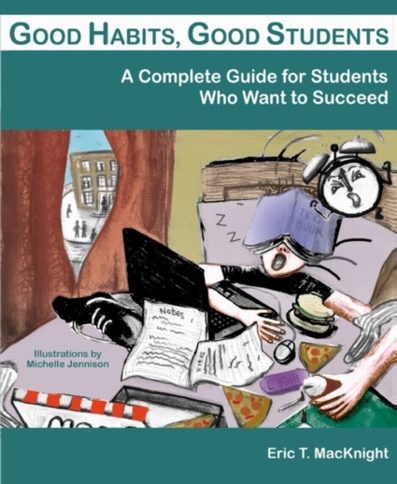Remember the time before the pandemic, when your day was filled with classes? “I wonder what I should do for the next hour?” was a question you rarely needed to ask. And the adults around you were constantly nagging you about your schedule and your deadlines.
“Wake up, you’ll be late to school.”
“Hurry up there, class starts in two minutes!”
“How’s that essay coming along?”
“Where’s your homework? It was due yesterday!”
No more. Now you have just as much work to do, or even more, but almost no schedule apart from an occasional online meeting. How to start? How to organize? Without a fixed schedule for each day and constant reminders from adults, many students are struggling to keep their learning on track during the pandemic.
Here’s the good news: you have an opportunity to develop time management skills and self-discipline that will really pay off when you get to university. First-year university students quickly discover that no one will remind them of due dates, or wake them up in the morning, or tell them it’s after midnight and they should go to sleep. Suddenly, just to maintain passing grades they need skills and habits they never needed in high school.
The unstructured days of distance-learning are more like being a university student. Seize the opportunity to develop work routines that keep you on track and up to date. Learn how to use a digital calendar, digital reminders, and to-do lists. Develop the habit of spending the last half-hour or so of each work day preparing for the next day’s work, making sure you will be ready. You might find a task-manager app like Notion useful.
You can also use independent reading and vocabulary study to help organize your work time in a healthy way. We have all been told that it’s unhealthy and counterproductive to sit for long stretches of time without a break. But if we take breaks every 20-40 minutes, that’s a lot of breaks to fill up with . . . what? Exercise, yes. Snacks, yes. And then . . . what? Here are a couple of suggestions.
1. Use break times for independent reading.
Background knowledge is the #1 factor in school success, and reading is the #1 way to acquire background knowledge. It also develops your general-level vocabulary, your reading comprehension, and your reading speed. Take advantage of the pandemic by reading a book of your choice for 15-30 minutes a day. You can build this reading time into your work habits. Take a break from other work, stretch out comfortably, and read for 15 minutes. Physical books are better than digital, and will give your eyes a needed rest from looking at screens.
2. Use break times to develop your higher-level vocabulary.
Take advantage of the pandemic, too, by building your higher-level vocabulary with Freerice, a free vocabulary web site and phone app from the UN’s World Food Program. I recommend the phone app. You should spend 10 minutes daily on Freerice: it’s fun, easy, and addictive. The program evaluates your responses and adjusts the level of vocabulary automatically. It recycles both right and wrong answers until you answer correctly several times, and then moves you up to new words. And, with every correct answer, Freerice’s corporate sponsors donate the equivalent of 10 grains of rice that will help to feed hungry people all over the world. By using Freerice daily you will increase your store of higher-level vocabulary (the words that you don’t normally encounter when reading novels, etc.) and help to make the world a little bit better at the same time. You can weave Freerice into your work habits very easily. Take a break every 30-40 minutes, walk around, and open up Freerice on your phone. If you do this just two or three times a day you will easily spend at least 10 minutes daily building your vocabulary.
Adding these independent reading breaks and Freerice breaks into your daily routines will help to organize your time, will keep you healthier, and will develop essential skills that you will find valuable your whole life.

